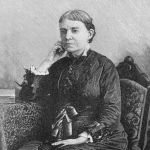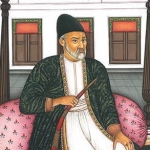I first discovered what was killing these men.
I had three sons who worked with their father in the tunnel:
Cecil, aged 23, Owen, aged 21, Shirley, aged 17.
They used to work in a coal mine, not steady work
for the mines were not going much of the time.
he formed a habit of dropping in evenings to drink,
persuading the boys and my husband —
give up their jobs and take this other work.
It would pay them better.
Shirley was my youngest son; the boy.
He went into the tunnel.
My heart my mother my heart my mother
My heart my coming into being.
My husband is not able to work.
He has it, according to the doctor.
We have been having a very hard time making a living since this trouble came to us.
I saw the dust in the bottom of the tub.
The boy worked there about eighteen months,
came home one evening with a shortness of breath.
He said, “Mother, I cannot get my breath.”
Shirley was sick about three months.
I would carry him from his bed to the table,
from his bed to the porch, in my arms.
My heart is mine in the place of hearts,
They gave me back my heart, it lies in me.
When they took sick, right at the start, I saw a doctor.
I tried to get Dr. Harless to X-ray the boys.
He was the only man I had any confidence in,
the company doctor in the Kopper’s mine,
but he would not see Shirley.
He did not know where his money was coming from.
I promised him half if he’d work to get compensation,
but even then he would not do anything.
I went on the road and begged the X-ray money,
the Charleston hospital made the lung pictures,
he took the case after the pictures were made.
And two or three doctors said the same thing.
The youngest boy did not get to go down there with me,
he lay and said, “Mother, when I die,
“I want you to have them open me up and
“see if that dust killed me.
“Try to get compensation,
“you will not have any way of making your living
“when we are gone,
“and the rest are going too.”
I have gained mastery over my heart
I have gained mastery over my two hands
I have gained mastery over the waters
I have gained mastery over the river.
The case of my son was the first of the line of lawsuits.
They sent the lawyers down and the doctors down;
they closed the electric sockets in the camps.
There was Shirley, and Cecil, Jeffrey and Oren,
Raymond Johnson, Clev and Oscar Anders,
Frank Lynch, Henry Palf, Mr. Pitch, a foreman;
a slim fellow who carried steel with my boys,
his name was Darnell, I believe. There were many others,
the towns of Glen Ferris, Alloy, where the white rock lies,
six miles away; Vanetta, Gauley Bridge,
Gamoca, Lockwood, the gullies,
the whole valley is witness.
I hitchhike eighteen miles, they make checks out.
They asked me how I keep the cow on $2.
I said one week, feed for the cow, one week, the children’s flour.
The oldest son was twenty-three.
The next son was twenty-one.
The youngest son was eighteen.
They called it pneumonia at first.
They would pronounce it fever.
Shirley asked that we try to find out.
That’s how they learned what the trouble was.
I open out a way, they have covered my sky with crystal
I come forth by day, I am born a second time,
I force a way through, and I know the gate
I shall journey over the earth among the living.
He shall not be diminished, never;
I shall give a mouth to my son.


















Comment form: